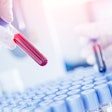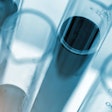
Dear LabPulse.com reader:
As more than 650 million people have been infected with SARS-CoV-2, even a low rate of long COVID could translate into a significant global public health concern. Multiple studies have assessed the effects of long COVID, but these investigations largely had retrospective designs, relied on electronic health record entries, and lacked an uninfected comparison group. Now, working with the NIH RECOVER Initiative, researchers at Mass General Brigham have defined signature symptoms of long COVID in a prospective cohort study and published their findings in JAMA. Their scoring system for long COVID may benefit efforts to define and study the condition.
In previous studies, investigators have reported an association between antibody titers and protection from SARS-CoV-2 infection at both the individual and population levels. A correlation between antibody levels and risk of infection has been demonstrated for the wild-type, Alpha, and Delta variants. However, those studies were conducted before the emergence of the highly infectious Omicron variant, and participants had received two vaccine doses before a third dose was recommended. A study in JAMA Network Open which investigated vaccinated health care workers in Israel shows that immunoglobin G and neutralizing antibody titer levels were associated with protection against infection from Omicron and against symptomatic disease once infected.
During the Delta and Omicron waves, fully vaccinated individuals had a lower risk of dying or developing some non-respiratory symptoms than people without protection against COVID-19, a retrospective review of medical records has found.
A critical care physician this week presented validation data for a U.S. Food and Drug Administration (FDA)-cleared rapid diagnostic test used in emergency departments to detect sepsis. The test, IntelliSep, was developed by San Francisco-based Cytovale.
The National Institutes of Health (NIH) has awarded a $2.4 million contract to Domus Diagnostics to develop an at-home molecular diagnostic platform and test that detects and differentiates COVID-19, flu A, flu B, and RSV.
Renalytix has selected Eversana, a global service provider to the life sciences industry, to further expand the commercialization of Renalytix’s KidneyIntelX prognostic test for early-stage kidney disease in type 2 diabetes.
Thank you for reading.
Leo O’Connor
Editor in Chief



















